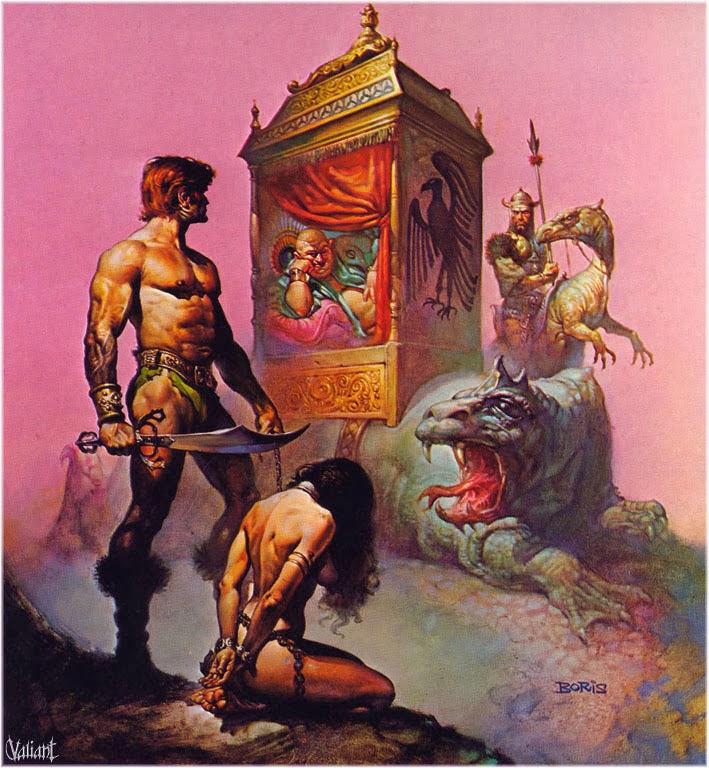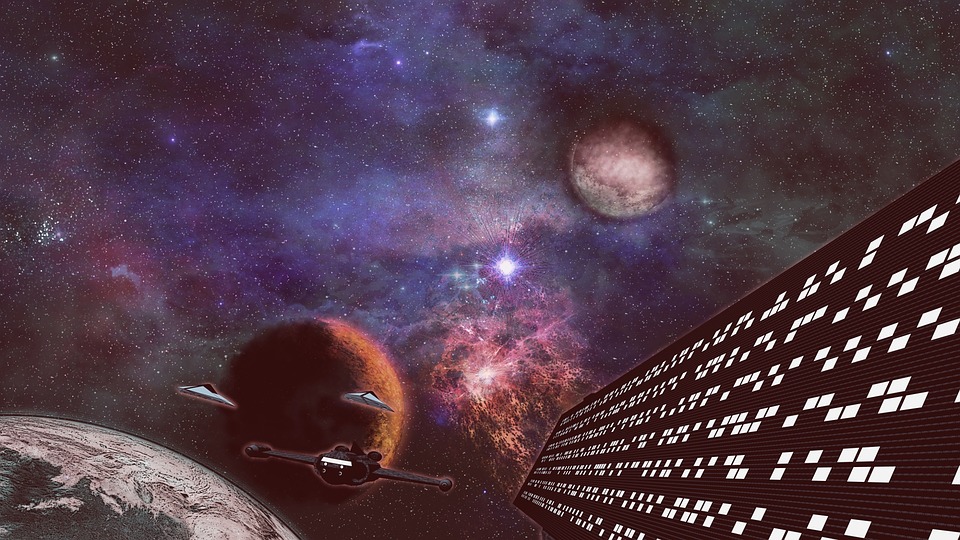Science fiction has captivated readers for centuries with its tales of futuristic worlds, advanced technology, and otherworldly beings. But where did this genre originate, and how has it changed over time? In this blog post, we will take a warp-speed journey through the history of science fiction literature, exploring its beginnings and tracing its evolution into the diverse and expansive genre it is today. So buckle up and get ready to explore the ever-changing landscape of science fiction.
Unearthing the Roots of Science Fiction
Science fiction has a rich and fascinating history that dates back centuries. Its roots can be traced back to the earliest forms of storytelling, when ancient civilizations shared myths and legends about fantastical beings and faraway lands. But it wasn't until the 19th century that science fiction truly began to take shape as a genre. The term "science fiction" itself was coined by the author and editor Hugo Gernsback in the 1920s, but the ideas and themes that define the genre can be found in works that predate this term. One of the earliest examples of science fiction can be found in Mary Shelley's 1818 novel, "Frankenstein," which explores the consequences of scientific experimentation and the nature of humanity. In the 19th century, science fiction gained traction with the publication of novels like H. G. Wells' "The Time Machine" and Jules Verne's "Twenty Thousand Leagues Under the Sea." These works explored themes of time travel, space exploration, and technological advancements, setting the stage for the genre's future developments. The 20th century saw the emergence of influential authors such as Ray Bradbury, Arthur C. Clarke, Isaac Asimov, Jack Vance, and Robert A. Heinlein. Their works, such as Bradbury's "Fahrenheit 451" and Asimov's "Foundation" series, further expanded the possibilities of science fiction by tackling social and political issues in imaginative and thought-provoking ways. As the genre continued to evolve, new subgenres like cyberpunk emerged, blending elements of science fiction with technology and a gritty, urban setting. Authors like William Gibson and Philip K. Dick became known for their groundbreaking cyberpunk novels, such as Gibson's "Neuromancer" and Dick's "Do Androids Dream of Electric Sheep?" Today, science fiction continues to captivate readers with its ability to transport them to new worlds and challenge their perceptions of reality. From dystopian societies to intergalactic adventures, science fiction remains a powerful medium for exploring the possibilities of the human imagination.
Evolution through Time: Science Fiction in the 19th Century
Science fiction literature in the 19th century witnessed a remarkable evolution as it began to establish itself as a distinct genre. During this period, science fiction delved into uncharted territories, exploring concepts such as time travel, space exploration, and technological advancements. These works set the stage for the future development of the genre and showcased the imaginative possibilities of human creativity. One of the most influential works of the 19th century was H. G. Wells' "The Time Machine." Published in 1895, this novel introduced the concept of time travel and the idea of exploring the distant future. It captivated readers with its portrayal of a society divided into two distinct species: the Eloi and the Morlocks. Through this gripping tale, Wells challenged notions of class, evolution, and the potential consequences of scientific advancements. Another significant contribution to the genre was Jules Verne's "Twenty Thousand Leagues Under the Sea," published in 1870. This groundbreaking novel took readers on an underwater adventure with Captain Nemo and his technologically advanced submarine, the Nautilus. Verne's vivid descriptions and detailed scientific explanations captivated readers and inspired future generations of writers. The 19th century also witnessed the emergence of pulp magazines, which played a crucial role in popularizing science fiction. These magazines, such as Amazing Stories and Astounding Science Fiction, provided a platform for authors to share their imaginative tales with a wide audience. They featured stories that pushed the boundaries of scientific possibility and ignited readers' curiosity about the unknown.
Post-War Transformation and the Golden Age of Sci-Fi
After the devastation of World War II, science fiction literature underwent a transformative period that would come to be known as the Golden Age of Sci-Fi. This era, spanning from the late 1940s to the 1960s, saw a surge in popularity for the genre, with numerous influential works being published and a growing community of dedicated readers. One of the key figures of this era was Isaac Asimov, whose prolific writing career helped shape science fiction as we know it today. Asimov's works, such as the "Foundation" series and "I, Robot," explored themes of artificial intelligence, robotics, and the ethical implications of scientific advancements. His stories captured the imagination of readers and propelled science fiction into the mainstream. Another notable author of this era was Arthur C. Clarke, known for his novel "2001: A Space Odyssey." Clarke's writing combined scientific accuracy with imaginative storytelling, offering readers a glimpse into the possibilities of space exploration and the mysteries of the universe. The Golden Age of Sci-Fi also saw the emergence of influential magazines like Astounding Science Fiction, which published stories by some of the genre's most celebrated authors. These magazines provided a platform for writers to share their visions of the future and connected readers with a wide range of science fiction stories. During this period, science fiction began to tackle complex social and political issues, using the genre as a lens through which to explore the human condition. Books like Aldous Huxley's "Brave New World" and Ray Bradbury's "Fahrenheit 451" examined dystopian societies and the dangers of technological advancement, sparking important discussions about the impact of science on society. The Golden Age of Sci-Fi represented a turning point for the genre, as science fiction gained mainstream recognition and readership. The works published during this time continue to be influential, shaping the genre and inspiring future generations of writers. With its focus on exploring the possibilities of the future, the Golden Age of Sci-Fi set the stage for the ongoing evolution of science fiction as a genre of limitless imagination.
Navigating New Frontiers: Science Fiction in the Digital Age
As we step into the digital age, science fiction is encountering a new era of exploration and innovation. With advancements in technology, the boundaries of what is possible in science fiction literature have expanded beyond what was imaginable just a few decades ago. From virtual reality to artificial intelligence, the digital age has opened up new frontiers for both writers and readers alike. One of the most significant changes in science fiction literature in the digital age is the way we consume and interact with stories. E-books and digital platforms have made science fiction more accessible than ever before, allowing readers to immerse themselves in futuristic worlds with just a few taps on a screen. Additionally, the rise of online communities and forums has created spaces for fans to connect, share theories, and discuss their favorite science fiction novels. Technology itself has become a central theme in many contemporary science fiction works. As our society becomes increasingly dependent on technology, authors are exploring the ethical, social, and existential implications of advancements such as artificial intelligence, genetic engineering, and virtual reality. Works like Neal Stephenson's "Snow Crash" and Ernest Cline's "Ready Player One" delve into the possibilities and dangers of a hyperconnected, technology-driven future. Moreover, science fiction in the digital age has expanded beyond the written word. With the rise of multimedia storytelling, science fiction can now be experienced through movies, TV shows, video games, and immersive experiences. From the groundbreaking visual effects of movies like "Blade Runner" and "The Matrix" to the intricate storytelling of video games like "Mass Effect" and "BioShock," science fiction has found new avenues to captivate and engage audiences.
Prominent Figures and Works That Shaped the Genre
When it comes to science fiction, there have been countless figures and works that have left an indelible mark on the genre. These individuals and their creations have shaped the landscape of science fiction, influencing generations of readers and writers alike. One such figure is Ray Bradbury, whose novel "Fahrenheit 451" continues to be a staple of the genre. With its chilling depiction of a dystopian society where books are banned and burned, Bradbury's work has become a cautionary tale about the dangers of censorship and the importance of intellectual freedom. Another prominent figure in science fiction is Philip K. Dick, whose novel "Do Androids Dream of Electric Sheep?" served as the inspiration for the iconic film "Blade Runner." Dick's exploration of artificial intelligence and the blurred line between human and machine has had a lasting impact on the genre, influencing countless works that have followed. No discussion of science fiction would be complete without mentioning Ursula K. Le Guin. Her novel "The Left Hand of Darkness" challenged traditional notions of gender and sexuality, pushing the boundaries of what science fiction could be. Le Guin's groundbreaking work has paved the way for more diverse and inclusive narratives in the genre. Of course, these are just a few examples of the many figures and works that have shaped science fiction. From Isaac Asimov's thought-provoking "Foundation" series to Octavia Butler's powerful exploration of race and identity in "Kindred," the genre is filled with brilliant minds and groundbreaking stories. As science fiction continues to evolve, new voices are constantly emerging and pushing the boundaries of what is possible. Whether it's N.K. Jemisin's imaginative world-building in the "Broken Earth" trilogy or Ann Leckie's exploration of artificial intelligence in the "Imperial Radch" series, the genre is in good hands. The influence of these prominent figures and works will continue to resonate for years to come, shaping the future of science fiction and inspiring new generations of readers and writers. So, as we delve deeper into the ever-expanding universe of science fiction, let's remember and celebrate the incredible contributions that have come before.
Science Fiction Today and Speculations on Its Future
Science fiction has come a long way since its early beginnings, and today it continues to captivate readers with its imaginative and thought-provoking tales. In the digital age, science fiction is thriving like never before, embracing new technologies and exploring the possibilities of the future. One of the most notable developments in science fiction today is the rise of diverse voices and perspectives. Authors from marginalized communities are bringing fresh and unique narratives to the genre, challenging traditional tropes and offering new insights into the human experience. This shift has resulted in more inclusive and representative stories, which resonate with a wider audience and reflect the rich diversity of our world. Another significant trend in science fiction is the increasing exploration of environmental issues and the consequences of climate change. As the global climate crisis looms, authors are using the genre to imagine the potential outcomes and to shed light on the urgent need for action. Works like Kim Stanley Robinson's "New York 2140" and Jeff VanderMeer's "Annihilation" tackle themes of ecological disaster and our relationship with the natural world, prompting readers to consider the impact of their actions on the planet. The future of science fiction is ripe with exciting possibilities. With advancements in virtual reality and augmented reality, readers may soon be able to fully immerse themselves in the worlds created by authors, experiencing stories in ways never before possible. Additionally, the growing interest in space exploration and colonization is likely to inspire a new wave of science fiction works that imagine what life could be like on other planets. As we look to the future, science fiction will undoubtedly continue to evolve and shape our understanding of the world. It will serve as a mirror to society, reflecting our hopes, fears, and aspirations. By exploring new frontiers and speculating on what lies ahead, science fiction will continue to challenge our perceptions, expand our imaginations, and inspire us to dream of a better future. So, buckle up and get ready for the thrilling ride that awaits in the ever-expanding universe of science fiction.



